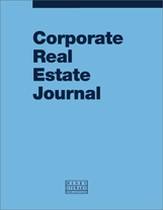New lease accounting standards are evolving: Is there a scary monster under the bed and will it really affect lease versus buy or other CRE decisions?
Abstract
The new lease accounting standards will change some business practices, but not the ones most have previously imagined. Why? What has changed? Very recently, the accounting boards (FASB and IASB) made significant changes to the proposals they originally released in August 2010. These changes served to alter the impact the original proposals were expected to have on CRE business practices and strategy. Thankfully, both for CRE and its counterparts in corporate finance, the changes adopted over just the past few months mean some of the most controversial aspects of the new lease accounting standards have been moderated so that they will not have as material an impact as originally envisioned. While all leases will still be capitalised with a front-loaded impact on the tenant's profit and loss, the revisions to how renewal options and contingent rents are to be accounted for, among other important changes, result in a smaller impact on the corporate balance sheet and income statement — provided CRE professionals understand the newly revised proposals. Importantly, the revised proposals mean CRE's lease versus buy decisions should not be impacted, but other business practices will be affected. So while the new lease accounting standards represent a monster hiding under CRE's bed, this paper explains why the monster is not as scary as most originally envisioned.
The full article is available to subscribers to the journal.
Author's Biography
Marc A. Maiona is the Founder and President of LeaseCalcs, Inc., establishing the firm in 2010 as the first SaaS solution to address and solve the problems resulting from the new lease accounting standards from the FASB and IASB. Marc began his career in commercial real estate with Cushman & Wakefield in Southern California, later joining CyberLease, the leading North American lease audit and lease accounting firm in 1994 as an audit manager, where he was soon after named a Managing Member of the firm. Over the years Marc has represented large, sophisticated tenants across a broad spectrum of industries, including firms like Fidelity Investments, State Street Bank, General Dynamics, Chevron, ExxonMobil, Boston Consulting Group and scores of others in order to assist them with the auditing and accounting related to their real estate leases. His many papers on the subject of commercial leasing and lease accounting issues have been published in leading industry publications such as Corporate Real Estate Journal, and Marc’s and LeaseCalcs’ insights have been quoted in the Wall Street Journal, Compliance Week and the Journal of Accountancy. Marc has also contributed to the operating costs section of ‘Negotiating and Drafting Office Leases’ by John Wood and Alan Di Sciullo, published by Law Journal Seminars Press. Marc received his Bachelor’s Degree in Economics from the University of California, Irvine. He has served on the Board of Directors of the International Association of Attorneys and Executives in Corporate Real Estate (AECRE), as an Associate Member of the Real Property, Trust and Estate Law Section of the American Bar Association and is a member of the Editorial Board of Henry Stewart Publications’ Corporate Real Estate Journal.
